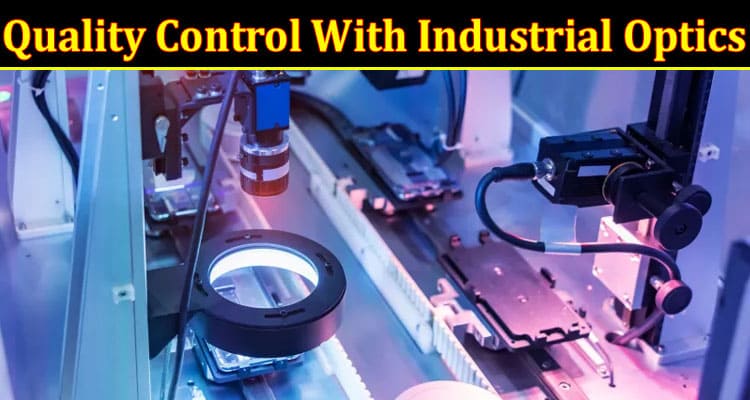Industrial optics have revolutionized the manufacturing process, allowing for precision control and quality assurance. Industrial optics are optical components, tools, or devices that help to monitor and control a wide range of industrial production processes. They can be used to optimize production accuracy and reduce production costs by helping to decrease waste and improve product quality.
In this article, we will discuss the basic principles of industrial optics and their applications in manufacturing to achieve precision control. We will also look at the benefits of using optical components for quality assurance, and the latest advancements that have been made in this field. Lastly, we will provide tips on what to consider when selecting the right products for your business.
The Basic Principles of Industrial Optics
Industrial optics utilize a variety of optical components, tools, and devices to inspect and monitor industrial production processes. These include lenses, mirrors, prisms, filters, beam splitters, and other optical components that can be used in combination with light sources and detectors to measure physical properties such as size, shape, location, or texture.
The main principle behind industrial optics is that they can be used to measure and control a variety of parameters with high precision. For example, they can measure the size of objects or materials very accurately, and in some cases even detect flaws such as scratches or imperfections. This allows for a greater level of quality assurance during production processes.
The Benefits of Using Industrial Optics for Manufacturing
The use of industrial optics has many benefits for the manufacturing process. It can help improve production accuracy and reduce waste, which can lead to greater efficiency and cost savings. Additionally, it can be used to detect defects in products quickly and easily, allowing for faster corrections that can result in higher quality standards.
Finally, industrial optics also enable a more automated production process. Automated optical inspection technology can be used to scan for defects and flaws in objects, and is often combined with robotic arms or other machines to ensure accuracy and repeatability. This type of automation can help speed up production processes while also ensuring consistent quality standards.
The Latest Advancements in Industrial Optics
The field of industrial optics is constantly evolving, with recent advancements that have made this technology even more powerful. For example, 3D scanning systems can now be used to accurately measure the shape and size of objects in three dimensions. Additionally, newer optical components such as wavefront sensors are being used to measure wavefront aberrations and improve imaging system performance.
Finally, artificial intelligence (AI) is being used in combination with optical components to automate optical inspection tasks and provide more accurate results. This technology can be used to quickly detect flaws in objects or materials, and even predict future defects based on previous data.
What To Consider When Choosing Industrial Optics for Your Business
When selecting the right industrial optics for your business, there are several factors to consider. First, you should think about the type of applications you need to fulfill and select optical components accordingly. Further, you should also consider factors such as size, weight, cost, and accuracy when making a selection. Finally, you should make sure that any products you choose are compatible with your current setup and can be easily integrated into your production process.
In conclusion, industrial optics provide unparalleled accuracy for the manufacturing process. They can be used to measure and control a variety of parameters with high precision, leading to improved product quality and lower overall costs. Additionally, the latest advancements in automation and AI are making industrial optics even more powerful, allowing for faster and more efficient production. When selecting the right industrial optics for your business, it is important to consider the type of applications you need to fulfill, as well as size, weight, cost, and accuracy. With proper research and a thorough understanding of your needs, you can find the best products to help optimize your production process.

